What's New?
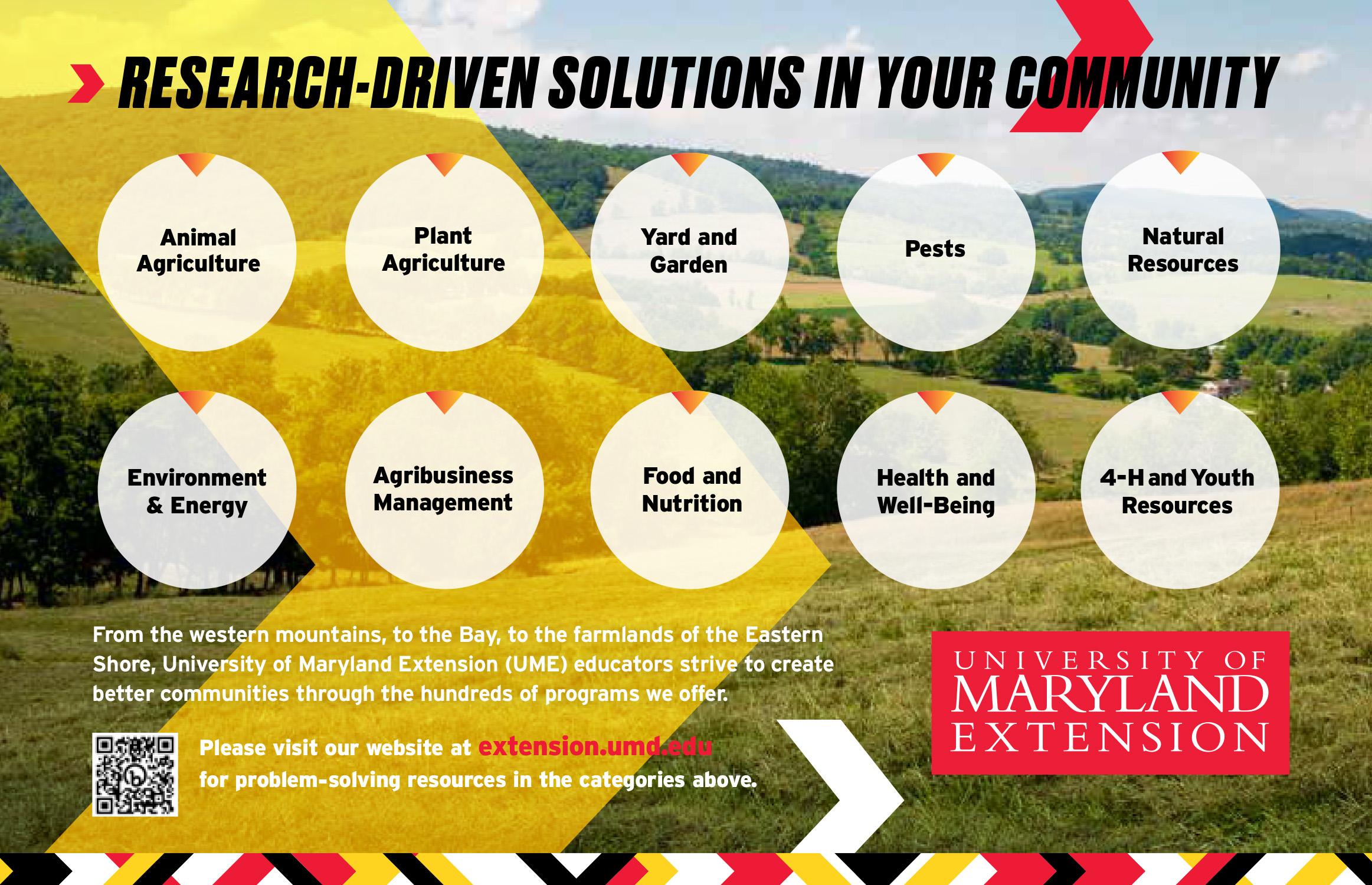
Extension Service Program Identification Card
The Extension Service Program identification card has been developed to highlight UME's groundbreaking programs, employment opportunities, locations and services. This card will be available in the top seven Maryland Limited English Proficient (LEP) languages: Spanish, Russion, Tagalog, Korean, French, Chinese, and Vietnamese.
Nine Agency Rule Notification
"USDA recipients of Federal financial assistance are required to provide written notice to program beneficiaries that they do not discriminate on the basis of an organization or entity's religious character, motives, or affiliation." Moreover, in compliance with 7 CFR 16, UME programs and services are delivered on a nondiscriminatory basis through the utilization of public notification requirements and the University of Maryland's Nondiscrimination Policy and Procedures VI-100 (B)
Our Mission
As a statewide non-formal education system, the University of Maryland Extension is committed to embedding our Diversity, Equity, Inclusion, and Respect (DEIR) goals, practices, and behaviors as key principles in our operational structure, communication delivery, and outreach mechanisms to meet the needs of Marylanders. UME’s purpose is to provide leading and exceptional applied research and educational programming to all individuals and adopt our College of Agriculture and Natural Resources roadmap to change the lives of our community, faculty, staff, and stakeholders – one learner at a time.
Our Vision
- UME is an inclusive entity within AGNR that respects and values differences, supports and creates opportunities to capitalize on those differences, fostering an environment that makes us better educators, employees, and volunteers.
- DEIR is integrated into all of UME and is the foundation for carrying out our mission, reaching broader audiences, and assuring our service and delivery reach every corner of the state.
- UME audiences, volunteers, and employees reflect the general population and our ability to meet a wide array of needs.
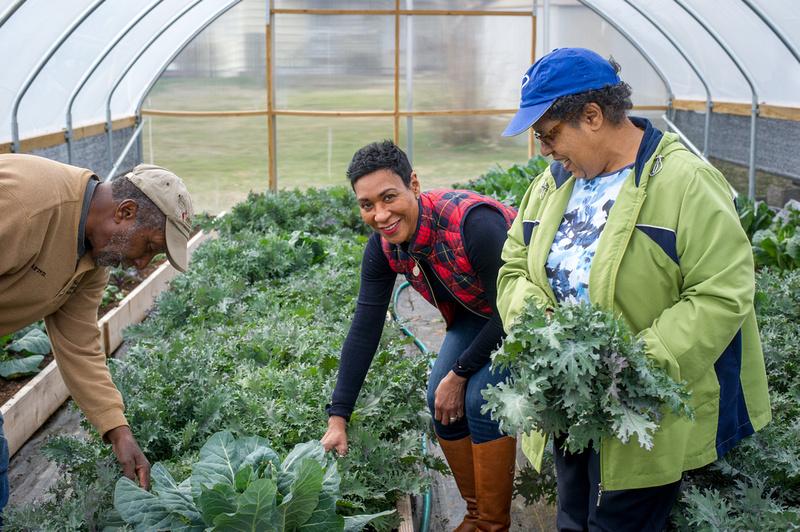
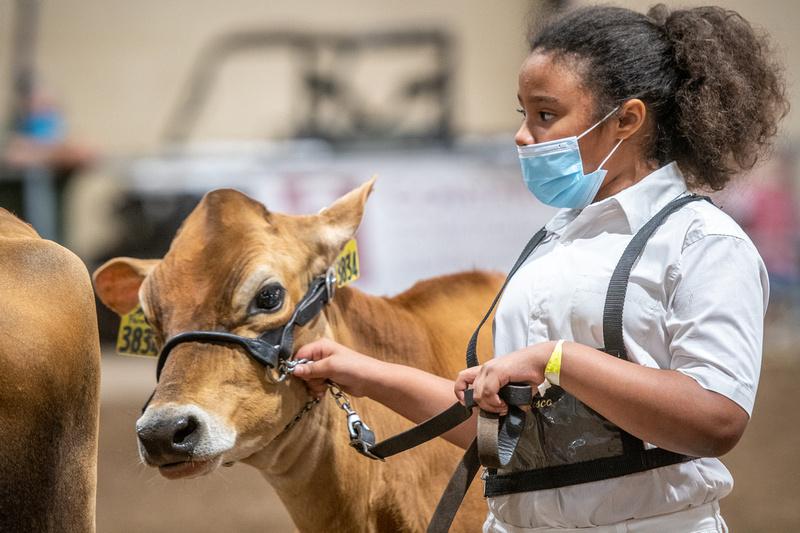

Our Goals
Goal #1: A UME culture and environment that is inclusive and values all employees
Short Term (6 months) Action Items
Programming - Conduct a cultural competency assessment among employees focused in: employee personal competencies, and workplace culture/climate.
Operations - Ensure that the physical work environment has inclusive and accessible facilities.
Departmental - Complete a workplace climate survey.
Medium Term (1 Year) Action Items
Programming - Draw on the workplace climate results to create a comprehensive workshop series to enhance the UME culture toward greater inclusiveness that values all employees, volunteers, and clientele. DEIR as a part of program development and implementation.
Operations - Make sure that all the employees attend the workshops and trainings.
Departmental - Provide equitable access to professional development, use of leave time, and work responsibilities.
Long Term (2-3 years) Action Items
Programming - Incorporate DEIR principles and philosophies as part of Extension employee onboarding including program development concepts within an Extension Program Development Academy.
Operations - Make sure that all the employees attend the workshops and trainings.
Departmental - Make sure that all the employees attend the workshops and trainings.
Goal #2: A workforce that represents the diverse needs of the state
Short Term (6 months) Action Items
Programming - Provide education, training, and mentoring for faculty and staff development including resources for faculty/staff to be more competitive for promotions.
Operations - Rewrite job announcements to reflect a more inclusive approach beyond the diversity statement at the bottom of the announcement. Qualifications will include experience, knowledge, and/or ability to work with diverse populations.
Departmental - Create information materials for undergraduate students regarding Extension and employment opportunities.
Medium Term (1 year) Action Items
Programming - Promote and value scholarship that focuses on diverse audiences.
Operations - Hire and onboard the data manager/analyst to design, support, analyze, and develop data management systems for the land-grant mission who will contribute to the tracking and assessment of the progress of our DEIR work.
Departmental - Create advancement pathways for staff and administrators.
Draw on UMD and surrounding university undergraduate and graduate programs to increase readiness through coursework and internship opportunities so applications are more competitive for Extension careers.
Long Term (2-3 years) Action Items
Programming - Assess the effectiveness of DEIR approaches within Extension programming through annual faculty review (AFR) and Performance Review and Development (PRD).
Operations - Create job shadowing and internship opportunities with an emphasis on the Minorities in Agriculture, Natural Resources and Related Sciences MANRRS students at UMCP and UMES, as well as Morgan State, and Bowie State and former 4-H members currently in college.
Departmental - Enhance mentoring program as it relates to the retention of a diverse workforce that may not have a strong Extension background. Further, the UME mentoring guide will be enhanced to focus on DEIR as a part of base of Extension programming.
Goal #3: Expand access to underserved and underrepresented audiences by increasing programmatic accessibility and decreasing barriers
Short Term (6 months) Action Items
Programming - Assessing what program materials/resources can be translated for language and cultural relevance.
Operations - Develop and implement an inclusive excellence framework that uses equity rubrics to assess conceptual framework, organizational infrastructure, program elements, community relationships assessing and responding to community.
Departmental - Identify needs and provide consistent expected processes that lead to discovering and engaging new audiences and partners.
Medium Term (1 year) Action Items
Programming - Expand UME communications beyond English and develop materials to reflect the diversity of the state, and share resources broadly across UME.
Operations - Define expectations and reflect accomplishments with DEIR on AFR and PRD processes.
Departmental - Identify and provide consistent expected processes to conduct inclusive assessments, with intentional efforts to engage those who have been historically excluded/disengaged from UME programs.
Long Term (2-3 years) Action Items
Programming - Conduct a DEI barrier analysis to accessing Extension programming.
Advance research on equity and justice, diverse and inclusive research teams, and research and evaluation methods that are appropriate for diverse audiences.
Operations - Increase accessibility of our current partnership/stakeholder data (collecting the demographics of our advisory groups and committees electronically).
Departmental - Enhance data collection, management, analysis, and reporting to inform UME DEIR planning and progress in community, programming, and inclusive environment.

Diversity, Equity, Inclusion, and Respect Plan
Click here to access the full Diversity, Equity, Inclusion, and Respect Plan from the University of Maryland Extension.
Mission in Action
The Purpose and Promise of 4-H
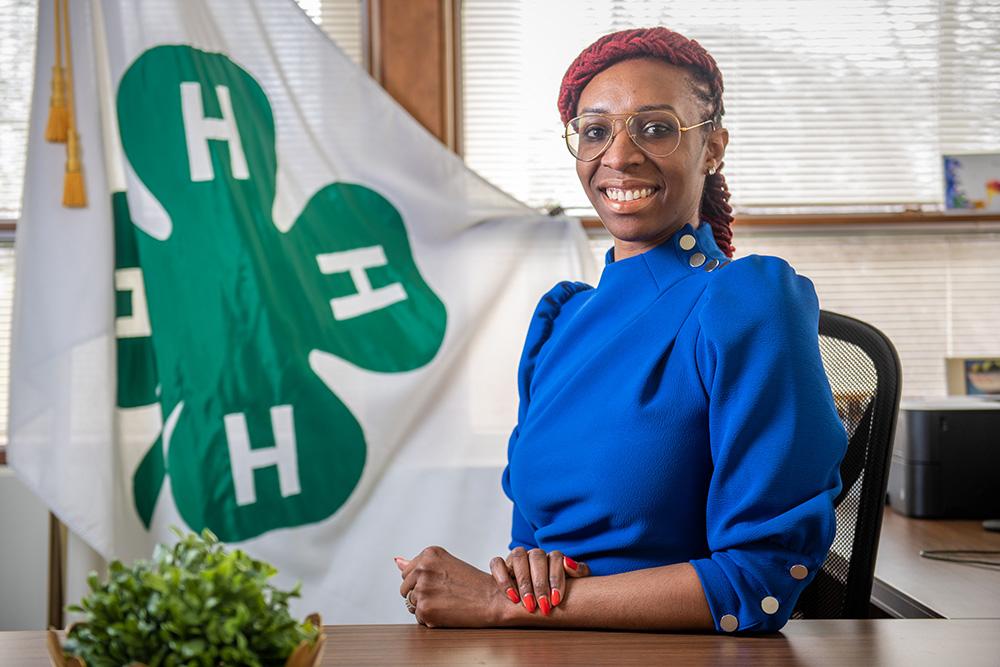
4-H is one of the most powerful youth development programs in the world. 4-H has the ability to connect youth from all corners of a county, state, country, and globe. Our program opens doors for young people to experience new things, meet new people, forge relationships with caring adults, and have perhaps their first exposure to colleges and careers. For many, 4-H is the 1st class of a land grant university.
Read the full message from Dr. Nia Imani Fields and watch our video segment on the importance of the Purpose and Promise of 4-H
Integrated Pest Management for a Diverse State

A team of UME educators was awarded more than $200,000 from the U.S. Department of Agriculture-National Institute of Food and Agriculture (USDA-NIFA) to provide increased access and education in Integrated Pest Management (IPM) supporting five separate teams that will focus on each IPM area – agronomic crops, green industry, communities, vegetables and fruit, and pollinator health and protection – all with a common goal of developing materials and educational workshops in both English and Spanish.
SNAP-Ed Annual Report
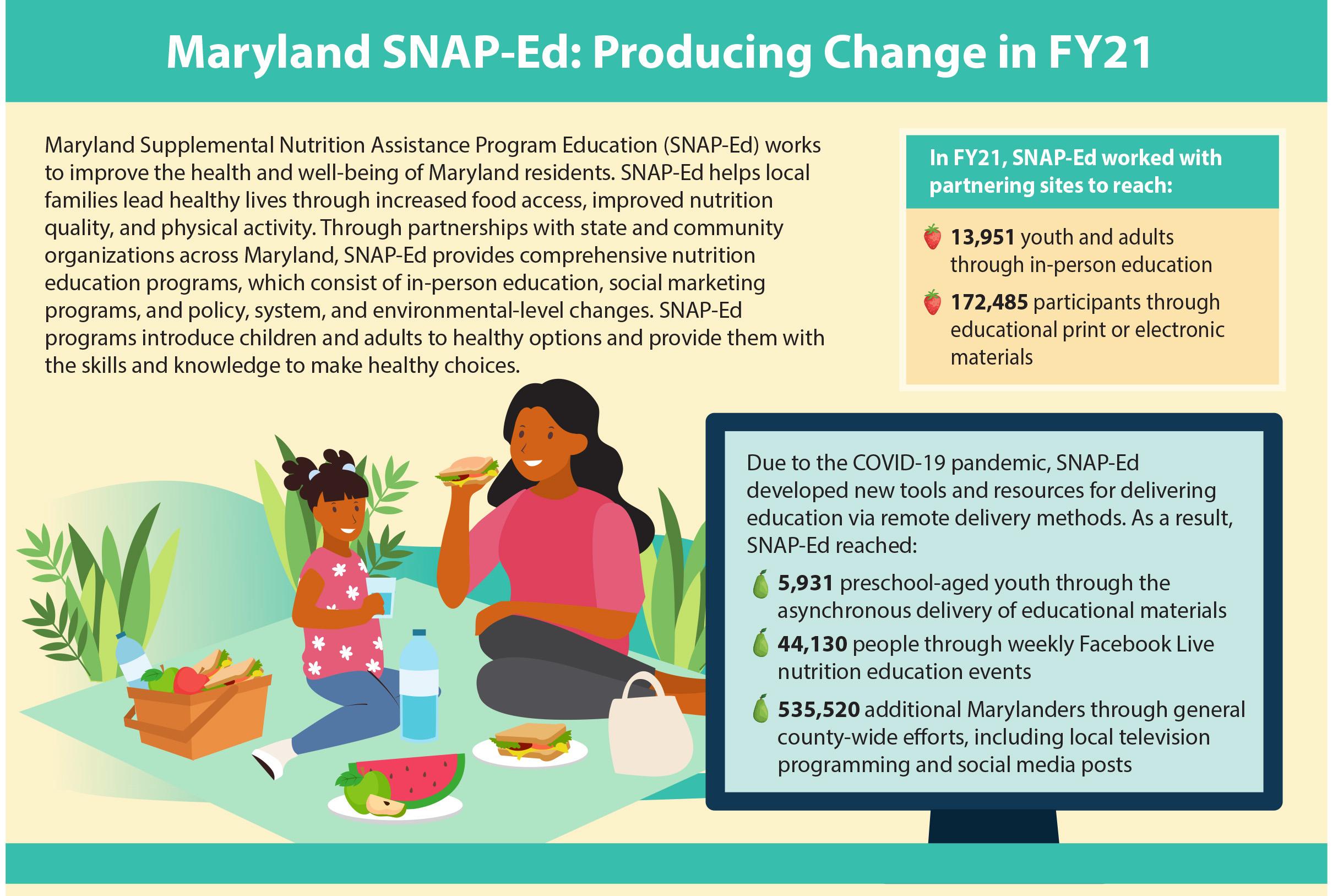
Maryland's SNAP-Ed Program contributes to significant statewide health impacts, including individual behavior changes and environmental improvements. The annual report highlights the accomplishments of SNAP-Ed programming over the past year, including statewide youth and adult nutrition education programs targeting low-income audiences throughout the program year.
Women In Agriculture

As the USDA reports, the number of women involved in agriculture has grown in recent years. MidAtlantic Women in Agriculture is dedicated to providing knowledge and resources to women who share a passion for agriculture.
History
Following the creation of AGNR’s DEIR vision, a task force was formed at UME to systematically understand the multifaceted need of our stakeholders. Initial draft for consideration was developed by UME Senior Administration, a representative of Area/City Extension Directors, and the AGNR Compliance Officer.
| Name | Dept, Position | Name | Dept, Position |
|---|---|---|---|
| Jeff W. Howard | Senior Administration Liaison | Aly Valentine | Senior Administration Liaison |
| Joy Rafey | ENR, Staff | Terry Serio | FCS, PTK |
| Mariah Dean | ENR, PTK | Jean Burchfield | ENR, Staff |
| Karen Basinger | FCS, PTK | Michael Elonge | FCS, Faculty |
| Luke Macauley | ENR, Faculty | Jessica Mellon | 4-H, PTK |
| Vernelle Mitchell-Hawkins | 4-H, Faculty | Sarah Hirsch | AGFS, PTK |
| Rose Greene Colby | 4-H, Staff | Susan Harrison | AGFS, PTK |
| Dhruti Patel | FCS, Faculty | Janet I. Sefton | 4-H, Staff |
| Jon H. Traunfeld | ENR, Faculty | Lee Ann Schnappinger Bridgman | AGFS/ENR, Staff |
Laying the Foundation
In-depth discussions focused on these pertinent questions:
- What does DEIR mean to you? What is your sense of its meaning to colleagues and volunteers?
- What are some of the challenges you may envision, both within and outside of Extension, as we consider this work?
- What do you envision as some foundational needs of the organization as we enhance our DEIR focus?
- As we consider shifting the culture of Extension to a more inclusive organization, what does that vision look like?
- How will we recognize that we have begun to evolve to a more inclusive organization?
Brainstorming for Improvement
Based on the suggestions provided by the participants, a preliminary draft plan was developed. A second meeting was organized to get feedback on the draft plan. All the participants of the second meeting were divided into three working groups and Padlet was used to collect their feedback on five different aspects of the draft.
- What elements of the proposed plan stand out as the most positive?
- Are there actions in the proposed plan that should be priority ordered, differently?
- What’s missing? Are there voids and if so, what suggestions does the group have to enhance?
- Are there actions in the plan that perhaps should be removed? If so, what is the rationale?
- What else do we need?
Consensus Agreement for Final Draft
Further, a third meeting was conducted to get further feedback on the draft plan with 3 questions.
- As we anticipate future training for our employees, what does that training plan look like? What are the parameters that may influence that?
- What are some suggestions as it relates to an engagement strategy? How do we bring the Organization along regarding the DEIR plan and the significance of the work?
- What are the concerns and challenges that we might anticipate regarding a shift in UME culture surrounding DEIR work? What ideas does the group have to mitigate as we anticipate this reality?
Based on all the feedback, suggestions, and constructive criticism received from the UME members over the 3 meetings, we came up with the 3 goals on DEIR.
To read the full list of responses and feedback to each of the questions, access the full University of Maryland Extension DEIR plan.